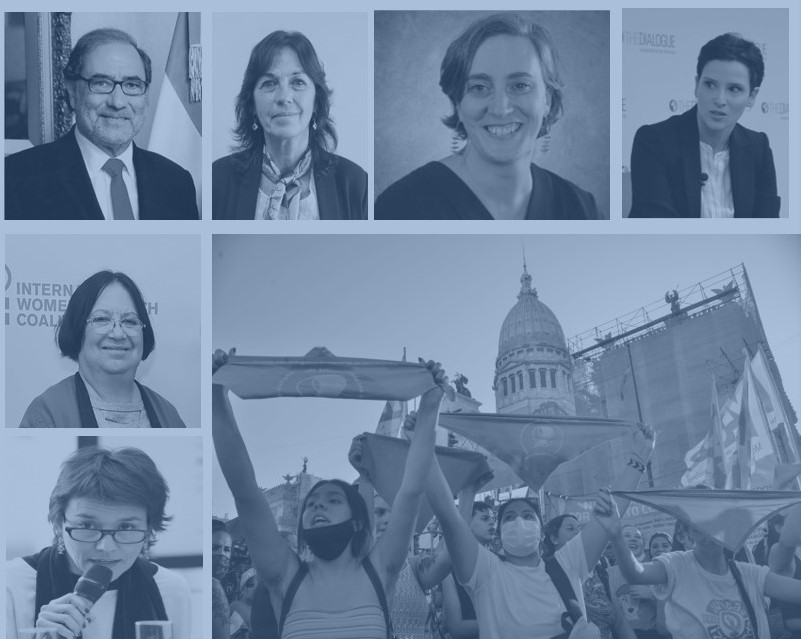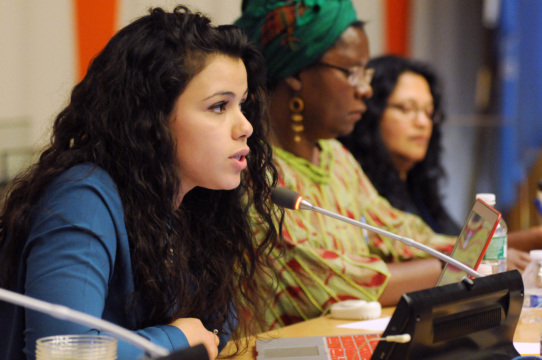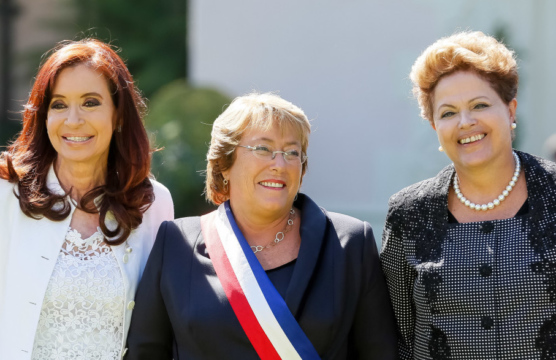What Roles are Women Playing in Mexico’s Drug War?
What roles are women playing in Mexico’s brutal drug trafficking war?
This post is also available in: Español
On February 25, 2021, the Inter-American Dialogue hosted the webinar “The Road to Legal Abortion in Argentina” in partnership with the Embassy of Argentina in Washington, DC, and the International Planned Parenthood Federation Western Hemisphere Region (IPPFWHR). Michael Shifter, president of the Dialogue, gave opening remarks. The event was moderated by Giselle Carino, CEO of IPPFWHR, and panelists included Vilma Ibarra, legal and technical secretary of the Presidency for the Government of Argentina; Marta Alanis, founder of Catholics for the Right to Decide and member of the National Campaign on Legal, Safe and Free Abortion in Argentina; Ana Cristina González Vélez, co-founder of La Mesa por la Vida y la Salud de las Mujeres and professor of Health Law at the Universidad de los Andes in Colombia; and Monica De Bolle, senior fellow at the Peterson Institute for International Economics (PIIE) and a Dialogue Member from Brazil. The event also featured closing remarks by Jorge Argüello, ambassador of Argentina to the United States. Panelists discussed the winning strategy employed by the feminist movement to promote passage of the law to legalize abortion, the challenges they encountered, and how they leveraged resources to produce a favorable outcome.
Ibarra laid out four key factors that played a role in the success of the 2020 vote to legalize abortion in Argentina. Unlike in 2018, this latest campaign to reform abortion law included the crucial support of a president who campaigned on the issue and helped sway lawmakers. Secondly, the presence of feminist women in the administration assured that there were allies maintaining pressure from within. The civil society campaign also sought consensus among various political factions, building trust that bridged ideological differences. Finally, a non-confrontational strategy assured the public that the law would not force women to go against their beliefs and explained, instead, that continued criminalization would lead to countless deaths from unsafe abortion. This approach disarmed opposition from the Catholic Church and other religious groups.
Alanis described how the women’s movement began laying the groundwork for this recent success in the 1980s with gatherings throughout the country that pushed for a range of feminist goals, including decriminalizing abortion on the grounds of public health, human rights, and social justice. In 2015, the emergence of the “Ni Una Menos” movement against rampant gender violence and the killing of women and girls broadened the feminist agenda and strengthened public support. This coincided with an infusion of young women into the movement, who brought an element of anger and urgency to the cause.
González noted that in Colombia a 2006 Constitutional Court decision allowed for abortion as a fundamental right, although limited to three specific circumstances. So, abortion remains the only health issue in Colombia subject to criminal law. In their continued push for reform of existing abortion law, the women’s movement in Colombia has promoted a broad, country-wide debate along with street mobilizations. Together, these have had a significant impact on hearts and minds of the general population as well as the political class. Like in Argentina, the iconic green scarf of the “Ni Una Menos” movement has come to represent in Colombia the demand for more just laws protecting women’s sexual and reproductive rights and health. González expressed her hope that this “green wave” might spread to mobilize the entire region.
Turning to Brazil, de Bolle argued that authoritarian politics have had a decidedly detrimental effect on women’s rights and reproductive autonomy. The rate of maternal mortality in Brazil is greater than in any other country in the world, with Black and low-income women being disproportionately affected. Unlike in Colombia, de Bolle sees no signs for optimism that the situation will improve in the near future, especially with the added challenge posed by the Covid-19 pandemic.
Overall, panelists offered a comprehensive view of Argentina’s path to legalized abortion, being candid about the obstacles and the victories. Ambassador Argüello concluded that the achievement experienced in Argentina is about the future: about the determination of government authorities and civil society actors working together to build a fairer, more just and inclusive society.
What roles are women playing in Mexico’s brutal drug trafficking war?
How are women faring in Latin America? Where has progress been made and how has that been achieved?
Would this be a more compassionate, more peaceful planet if more of it were ruled by women?
 Main Photo: Constanza Niscovolos / IPPF/WHR
Main Photo: Constanza Niscovolos / IPPF/WHR

